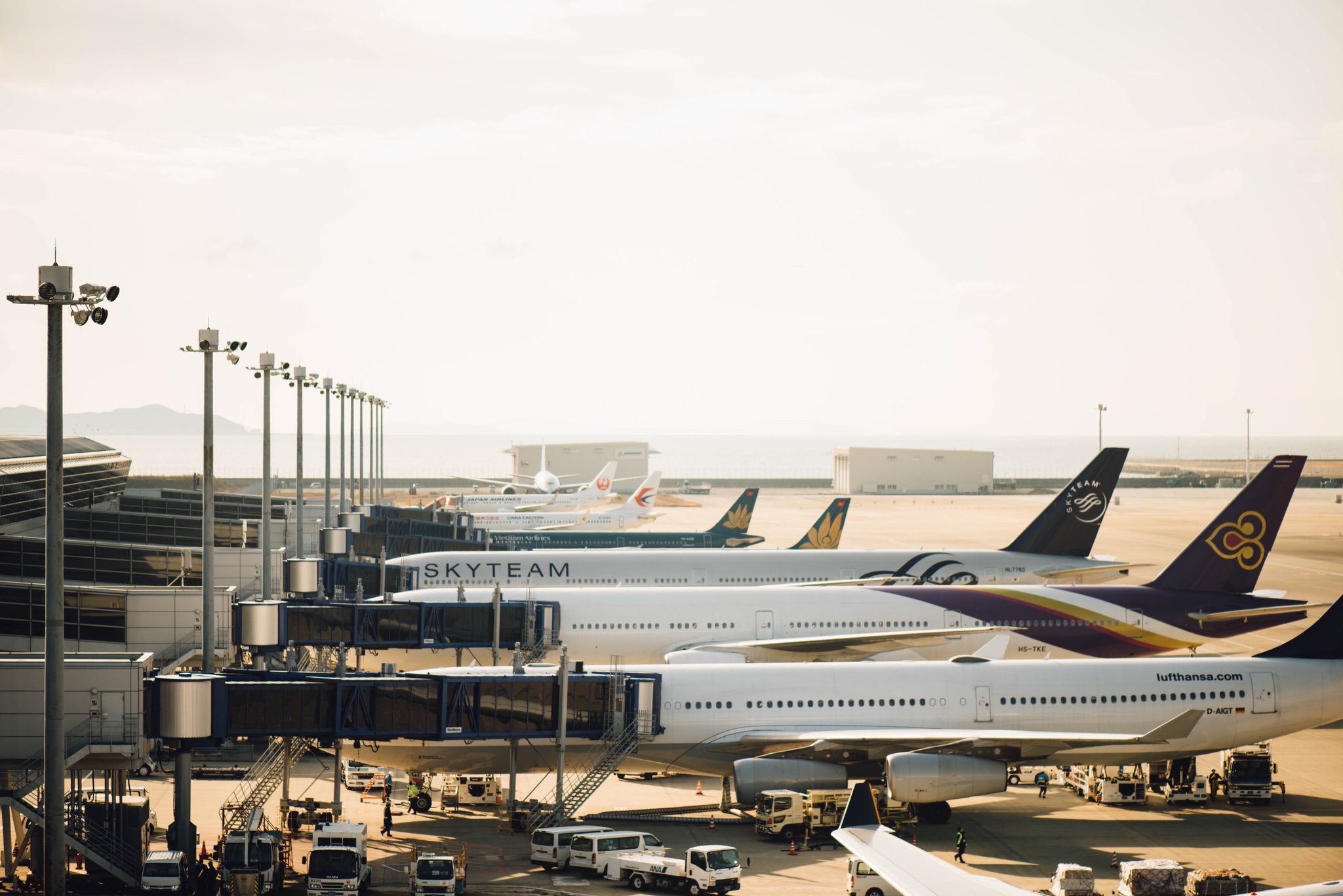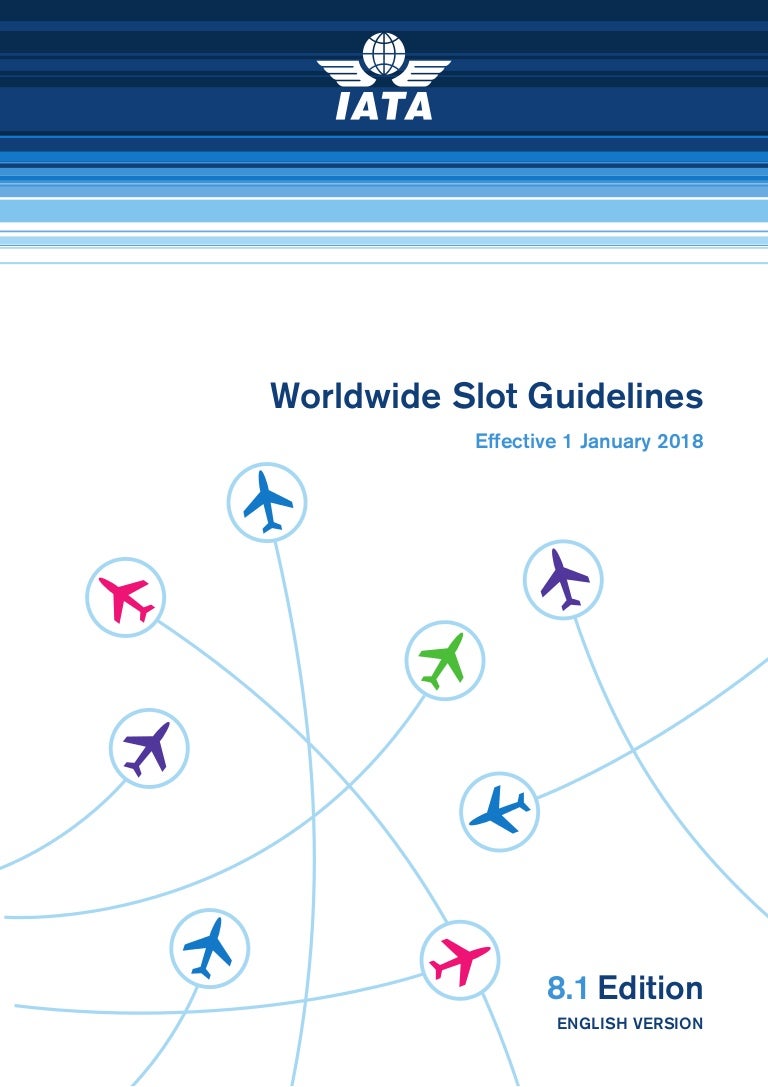Wsg Slot Guidelines

Authors: Hanna Schebesta and Giovanni Sartor
European University Institute
Wsg Slot Guidelines List
WSG is a set of standards and best practices developed by IATA Member airlines along with the airport coordinator and facilitator communities. These guidelines are a comprehensive set of procedures for the allocation and management of slot administration. The objective of the WAGA pre-conference workshop on airport slots was to shed light on the key allocation policies and processes contained in the IATA Worldwide Slot Guidelines (WSG), to take stock of the strategic review of these guidelines undertaken jointly by the airports, the airlines and the slot coordinators community, and to illustrate concretely the leading role that airports can play in the slot allocation process.

The Slot Regulation allows 100% of the slot pool to be allocated to new entrants if the Coordinator decides that is the appropriate allocation. The WSG has recently been updated to be more specific on the share of the pool with 50% of slots being allocated to new entrants and 50% to non-new entrants. Worldwide Scheduling Guidelines vi WSG, 12th Edition – December 2005 ABOUT WORLDWIDE SCHEDULING GUIDELINES For the avoidance of doubt, Annexes 1-3 do not constitute part of these Guidelines and are presented here for information purposes only. Proposals for additions or amendments to these Guidelines must be submitted to IATA Management for. The Worldwide Slot Guidelines (WSG) have been developed by airlines, airports and slot co-ordinators to provide a practical solution that can be applied to any airport globally to allocate slots.


Wsg Slot Guidelines 2019
Abstract: This case study explores the Worldwide Slot Guidelines (WSG), which represent a set of agreements made under the auspices of the International Air Transport Association (IATA) in order to allocate airport capacity. The right to use airport capacity for the purpose of takeoff and landing operations at airports is commonly called slots, with each airport having a finite amount of airport capacity. Thus, the slot allocation process is one of resource management: the WSG were developed as a global industry standard to address a key constraint in the aviation domain. The actual process of slot allocation is complex and involves organizations and stakeholders at multiple levels, all falling under the umbrella of IATA, a trade association representing 240 airlines. It designates particularly congested airports, creates roles of airport coordinators, and establishes management principles for slot allocation. Because they manage a valuable economic resource, the transparency and independence of coordinators is of particular concern: this has resulted in the institutionalization of a negotiating process to ensure accountability among key stakeholders. Through an examination of the history and key points of change in the process, the WSG case presents an example of private sector coordinated resource management.
Global air passenger traffic numbers are expected to double to 8.2bn by 2037. This year, passenger numbers may reach 4.72bn, up 4% on 4.54bn in 2019.
This highlights the need for airports and airlines around the world to make the best use of existing infrastructure as well as plan for new infrastructure.
Because of capacity crunch, airlines compete for slots, especially in busy airports in Asia, Europe and North America.
Industry figures show as many as 204 airports globally require “slot co-ordination” now because they have insufficient capacity to meet demand at all times of the day.
Each year, more than 1.5bn travellers or 43% of global traffic depart from these slot-co-ordinated airports, according to the International Air Transport Association. The number of slot-co-ordinated airports is expected to grow significantly due to a lack of expansion in airport infrastructure to cope with the rising demand.
Airport slots are a solution to a lack of airport capacity, experts say. Pre-assigned take-off and landing slots are required to avoid chaos at airports where the infrastructure cannot match demand; allocating that capacity to airlines in a fair, neutral and transparent manner should be the role of an independent slot co-ordinator.
This ensures the aviation industry can continue to grow and provide consumers the destinations and connectivity they demand.
The Worldwide Slot Guidelines (WSG) have been developed by airlines, airports and slot co-ordinators to provide a practical solution that can be applied to any airport globally to allocate slots each season and manage a shortage of capacity.
Airports need to do more to increase the operating capacity of existing infrastructure and governments need to encourage and facilitate timely and cost-effective expansion of congested airports and airspace.
The WSG cannot certainly deliver more capacity; only make best use of what’s declared to be allocated.
Therefore, effective analysis of capacity and demand is essential to allow all available capacity to be declared for slot allocation and use. Today, this process is lacking at many co-ordinated airports and in the short term could expose vital additional capacity.
On the need for a global approach to slots, the association says, “Aviation is the most global of industries, so where capacity constraints exist, there is a need for a single, harmonised, global set of guidelines. The basic principles of slot management are transparency, certainty, flexibility and sustainability. Flights operate between two airports; hence it’s vital that the rules at both ends work consistently and in harmony.”
WSG have seen to perform well at some congested airports. It may not be perfect but challenges to the WSG are disproportionately focused on London Heathrow and a very small number of other airports (Amsterdam, Hong Kong) that are essentially in a separate category that could be called ‘super congested’.
Major low-cost carriers use a significant number of slots at congested airports and are said to be firm supporters of the WSG, which has enabled them to enter congested markets and grow and compete with certainty.
IATA says the aviation industry remains in the midst of a capacity crises and continue to see the importance of slot coordination — because this process enables access at airports that simply can’t keep pace with growing demand.
Last year, a new governance structure for the WSG that keeps the interests of the travelling public at the centre of the process, was put in place.
The new industry-wide governance on airport slots was endorsed by the Airports Council International (ACI) World, the International Air Transport Association (IATA), and the Worldwide Airport Coordinators Group (WWACG).
All parties agreed that new governance and increased collaboration provides an opportunity to further modernise slot allocation mechanisms to the benefit of the travelling public and the aviation community at large.
New guidelines would make slot allocation even more responsive to the changing needs of the market, points out IATA director general and CEO Alexandre de Juniac.
“For more than 40 years, the Worldwide Slots Guidelines has managed scarce airport capacity fairly, transparently and independently,” de Juniac said.
“This has enabled airlines to make network investments with certainty. But more importantly it has benefited consumers by ensuring schedule reliability while enhancing competition by providing opportunities for new entrants in even the most congested airports.”
Obviously, WSG is not a substitute for the provision of more airport capacity. “Globally harmonised slot rules make the best use of the infrastructure we have. But they cannot create capacity when the physical infrastructure — runways and terminals — is insufficient. Governments need to act today to avoid a crisis of vital connectivity as demand grows,” said de Juniac.
Airport construction is failing to keep pace with increased demand for aircraft movements. Therefore, globally applied rules for the use of available capacity at constrained airports will become increasingly important.
As the number of slot coordinated airports is set to rise substantially over the coming decades, it is high time governments around the world urgently addressed capacity shortages.
* Pratap John is Business Editor at Gulf Times.